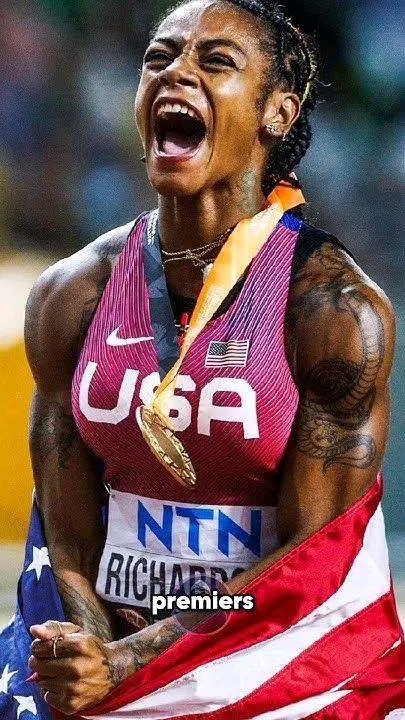Breaking News: “I reached my limit,” Sha’Carri Richardson admitted after slapping Julien Alfred over…

Breaking News: “I couldn’t tolerate it any longer,” Sha’Carri Richardson admitted after slapping Julien Alfred…
In a recent event that has reverberated through the athletic world, sprinter Sha’Carri Richardson disclosed details about an altercation with fellow athlete Julien Alfred. This incident allegedly transpired during a pre-race gathering and escalated into a heated confrontation where Richardson ended up slapping Alfred. In her initial public remarks on the matter, Richardson shared her feelings and explained what led to her actions.
Richardson, celebrated for her lively personality and remarkable track talent, has encountered numerous challenges and public scrutiny. The conflict with Alfred seems to stem from the immense pressure both athletes experience in the highly competitive track and field environment. “I couldn’t tolerate it any longer,” Richardson admitted, suggesting there were underlying tensions that may have been accumulating between them.
According to insiders familiar with the matter, tensions between Richardson and Alfred have been intensifying recently. The two athletes have vied for leading positions in multiple events, which seems to have exacerbated their rivalry. Richardson admitted feeling this pressure, remarking that navigating emotions is challenging when constant attention is on them: “It’s hard to navigate the emotions when you’re constantly in the spotlight.”
The incident has ignited extensive dialogue among fans, analysts, and fellow athletes regarding the role of mental health in sports. Many are showing their support for Richardson, acknowledging the significant pressure on athletes to consistently perform at peak levels. Some people have raised concerns that such incidents highlight the necessity for improved support systems to help athletes manage stress and competition pressures effectively.
In her statement, Richardson expressed regret about the altercation, emphasizing that physical confrontations do not reflect who she is as an athlete or individual. “I aspire to be a role model and this isn’t how I want to be perceived,” she remarked. This sentiment strikes a chord with many young athletes who admire her as an icon in the sport.
Looking ahead, Richardson has indicated a wish to repair her relationship with Alfred and concentrate on improving her training and performance. Both athletes are preparing for upcoming competitions, leaving the impact of this incident on their careers uncertain. As discussions about mental health and competitive pressures gain momentum in the athletics community, Richardson’s experience highlights the complexities that athletes encounter beyond just competing.
